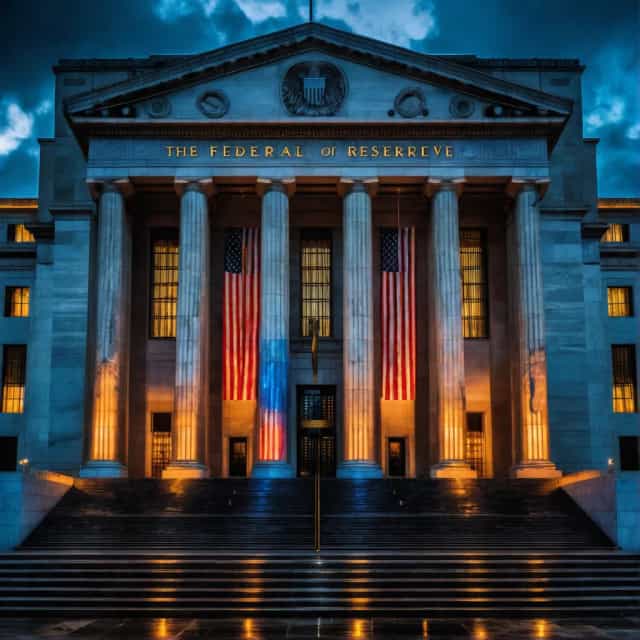
출처: Block Media
House Republicans Propose Stopgap Bill Amid Growing Government Shutdown Threat
House Republicans have unveiled a new stopgap funding bill in a bid to avert a looming U.S. federal government shutdown set to take effect on October 1. However, the bill, which excludes key provisions favored by Democrats—particularly in healthcare policy—has triggered a political standoff. As both parties dig into their respective positions, the nation faces mounting uncertainty about its fiscal trajectory.
The proposed legislation aims to extend government operations through November 21 while allocating funds to bolster security for public officials in response to recent violence, such as the killing of conservative activist Charlie Kirk. Key funding measures include $30 million for congressional district office security, $30 million for federal executive branch protection, and $28 million to support judiciary security efforts.
Additionally, the bill seeks to address a $1 billion fiscal shortfall faced by Washington, D.C., by authorizing the district to utilize its local tax revenues. This provision had been excluded in the prior stopgap package, raising serious budgeting concerns for the district.
Internal GOP Divisions Complicate Negotiations
Despite Republican control of the House, fractious internal divisions highlight the difficulty of advancing the legislation. With their slim majority, the defection of even a few members could derail the bill. Already, at least four Republican lawmakers—Thomas Massie (Kentucky), Victoria Spartz (Indiana), Warren Davidson (Ohio), and Marjorie Taylor Greene (Georgia)—have voiced opposition to the measure.
Massie criticized the stopgap funding bill for lacking spending cuts, a long-standing demand from fiscal conservatives, while Spartz expressed frustration over the deadline's proximity to Thanksgiving. These internal rifts underscore the challenges House Speaker Mike Johnson faces in unifying his conference.
The fractures within the Republican Party mean that securing Democratic support may become a necessity. However, Democrats have presented firm demands in exchange for their backing, complicating negotiations further.
Democratic Resistance and Healthcare Policy Demands
House Democrats, led by Minority Leader Hakeem Jeffries, have tied their support for the stopgap bill to critical healthcare reforms. Their demands include extending subsidies for Affordable Care Act (ACA) premiums, which are set to lapse, restoring Medicaid funding cuts from the Trump administration’s tax reforms, and securing protections against cuts to research funding.
ACA premium subsidies have emerged as the focal point of this legislative clash. Starting November 1, millions of Americans who rely on the ACA will begin to receive notices impacting their 2024 premiums, and sharp increases are predicted. Jeffries warned that sudden price hikes would burden families with healthcare costs potentially ranging into thousands—or tens of thousands—of dollars.
While some moderate Republicans have shown tentative support for extending ACA subsidies, the prevailing reluctance within the party has thwarted meaningful progress. Senate Republican Whip John Thune underscored this divide by emphasizing the stopgap bill as a temporary solution to buy negotiation time, rather than fully addressing long-term healthcare policy.
Heightened Shutdown Risks Amid Escalating Tensions
Partisan tensions are reaching a boiling point, further jeopardizing efforts to prevent the shutdown. Senate Majority Leader Chuck Schumer has accused Republicans of intentionally stalling negotiations, while Senate Republican Whip John Thune has laid the blame squarely on Democrats. Thus far, neither party has signaled a willingness to yield, creating an increasingly volatile political dynamic.
The House is scheduled to vote on the proposed funding measure this Friday, after which it will head to the Senate for consideration. To pass the Senate, however, the bill would require support from at least seven Democratic Senators to break a potential filibuster—a feat that seems unlikely given the entrenched positions on both sides.
The Final Countdown
If no bipartisan agreement is achieved soon, federal agencies face the risk of closure, which could disrupt essential services, delay employee paychecks, and negatively impact economic stability. The uncertainty surrounding this fiscal dispute underscores a broader inability for lawmakers to resolve high-stakes disputes swiftly, with Americans left to bear the consequences.
The outcome of this standoff remains uncertain, but one thing is clear: the road to averting a government shutdown is fraught with political obstacles. Both parties must decide whether to prioritize compromise or continue their partisan brinksmanship—decisions that could significantly impact the nation in both the short and long term.










